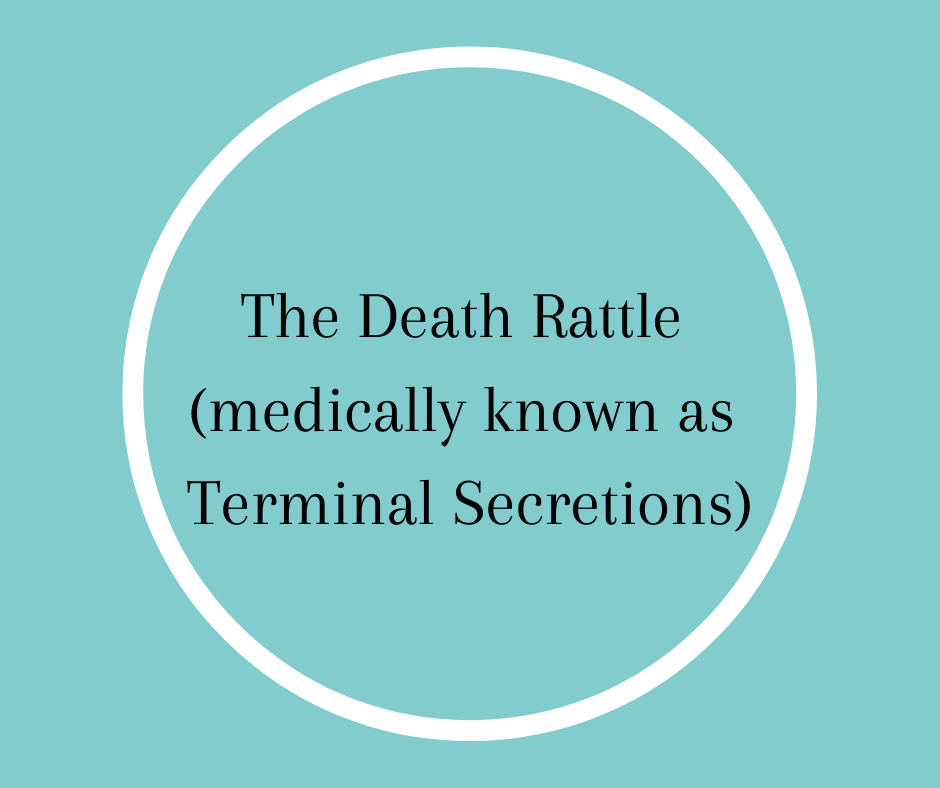Death rattle is the scary sound a person often makes in the hours or sometimes days before death. It is fluid that accumulates in the lower throat. The person is not swallowing. The saliva and fluid in the lungs, due to lack of normal body processing (the body is shutting down and nothing works right), is accumulating in the lower part of the throat. That fluid is too deep to really be reached by a suction machine although that is the first thing we think of to get rid of it. The death rattle is not always present. Those people that have more fluid or are more hydrated as they approach death, are the ones most likely to experience this natural phenomenon.
Human beings tend to be “fix it” personality types and we particularly expect medical professionals to fix any situation. The death rattle is a normal, natural part of the dying process. It is harder on us, the watchers, than on the person who is dying. By the time a person is experiencing a death rattle they are very much removed from their bodies, generally non responsive and are busy in the process of letting go of their bodies. The congestion is part of that letting go.
For the “fix it” personalities a Scopolamine Patch is sometimes effective in reducing the secretions as is Atropine 1% drops. Generally, simply repositioning the person from side to side and keeping them off of their back will help reduce the rattle as much as anything.
What really helps is that we know that what is happening is very much a part of the normal dying process, that nothing bad is happening. It is scary because we are not used to the sound, it sounds uncomfortable and like it shouldn't be happening so we want it to stop. This is our discomfort. This is part of our fear and grief in the experience.
If we understand how the body naturally releases it’s hold on life, fear of the experience for us (the watchers) can be reduced. We can share more comfortably in the gift of being with a loved one who is dying.
Our presence at the bedside, of love, support, and touch, is the comfort that is needed during this last experience of our loved one, not medical intervention.
Something More... about The Death Rattle (medically known as Terminal Secretions)
So many families are alone in the final day, hours, minutes before their loved one dies even if they are in hospice care. We have a guide for families called The Eleventh Hour: A Caring Guideline for the Hours to Minutes Before Death. Our DVD Kit, NEW RULES for End of Life Care is helpful for families to watch as it explains what will happen when death approaches and how best to care for the dying loved one. If you know someone who is approaching death you may want to look at the End of Life Guideline Series.






66 comments